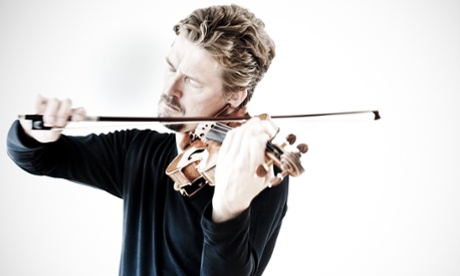
“It’s a big part of me,” Christian Tetzlaff says of Beethoven’s Violin Concerto, a work he has now played around 280 times. Faced with that fact on its own, one could be forgiven for wondering if the 49-year-old German might have nothing more to say with it. But listening to his staggering performance with the London Symphony Orchestra and Daniel Harding, you realise that his statement is almost literally true.
He seemed so completely immersed in the concerto that the overall impression was not so much of his playing it as living it. Any performance has to transcend concepts of virtuosity if it is to have its full impact. Technically, Tetzlaff is flawless, and the sound he makes with his modern Greiner violin – he doesn’t play a Strad – is effortlessly beautiful. But it’s the way the shape and meaning of every phrase is joyously integrated into a seamless whole that is so utterly beguiling. This is true even in the vast cadenzas, which Tetzlaff based on those Beethoven added to a later piano transcription of the work, having left his original violinist to improvise his own. Harding, meanwhile, conducted like one possessed. Unforgettable: the greatest performance of the work I’ve ever heard.
After such a remarkable achievement, however, the performance of Brahms’s German Requiem that followed proved anticlimactic. Harding’s interpretation was bleak, with the juggernaut roll of Denn Alles Fleisch not always balanced by a sense of hope or consolation. Exaggeratedly slow speeds pushed the excellent London Symphony Chorus to their limits in places. Soprano Sally Matthews, a late replacement for the indisposed Dorothea Röschmann, was not in ideal voice. Matthias Goerne was the expressionistic baritone. It was not, I’m afraid, Harding’s Brahms at its best.

